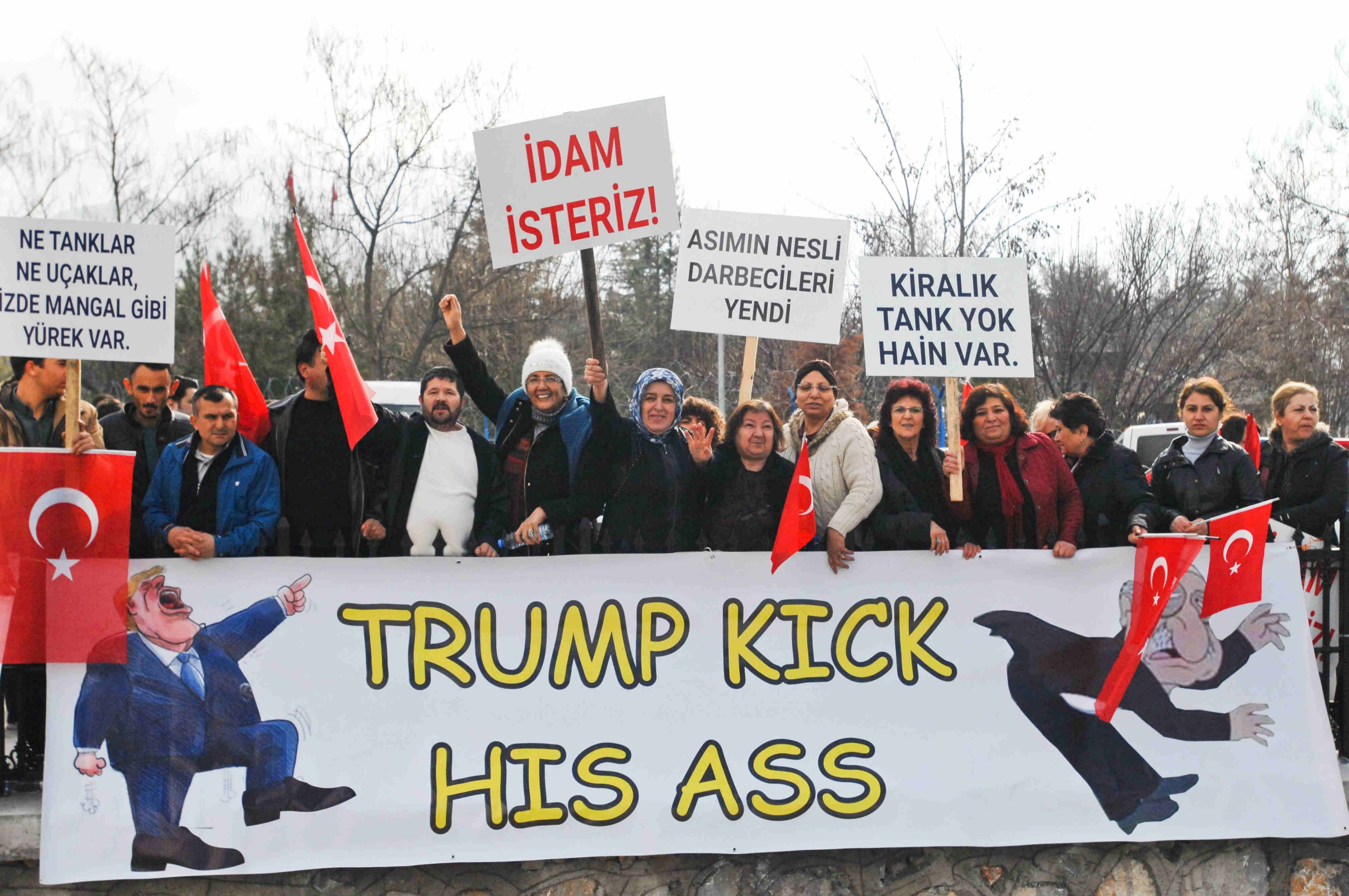Anti-US sentiment in Turkey reaches a new high, poll shows

More than 50 years after a state visit by Turkish president Celal Bayar to the United States that marked the beginning of a close alliance between the two countries, anti-Americanism has reached new heights in Turkey.
A new survey by Istanbul's Kadir Has University has revealed that 81.9 percent of the Turkish public view the US as a threat.
The poll, which was conducted between 12 December and 4 January in 20 provinces with a sample of 1,000 individuals, is further evidence that the two Nato allies' relationship is severely deteriorating.
Several incidents in 2018, such as Washington imposing sanctions against two Turkish ministers over the detention of an American pastor and strongly worded threats issued by US President Donald Trump over the safety of Syrian Kurds, are likely leading reasons for the trend.
Murat Yetkin, a veteran Turkish journalist known for his liberal views, cited on his blog two main reasons for the anti-Americanism in Turkey.
"The first one is the US collaboration with the Syria wing of the outlawed Kurdistan Workers' Party [PKK] against the Islamic State," he said, noting that the PKK was listed by the US as a terrorist group as well.
"The second reason is the American shelter to Fethullah Gulen, the US-resident Islamist preacher who is accused of masterminding the 2016 military coup attempt in Turkey."
The Turkish public seems to separate the Nato military alliance from the US, even though Washington has been the organisation's greatest benefactor since its founding in 1949. According to the poll, 58.7 percent of Turks believe Turkey should maintain its membership of the alliance.
The survey, however, casts a spotlight on another issue: Turks are not only anti-American but also very suspicious of major Western countries and neighbours.
Over half of respondents said that Britain, France and Germany posed a danger to Turkey. Just under half said the same about Greece and Cyprus.
Respondents also perceived Israel (63.3 percent), Armenia (55.7 percent) and Syria (54.6 percent) as among the leading threats.
Though Moscow and Ankara have reached significant diplomatic breakthroughs in recent years, most notably over Syria, Russia, a historic foe, has had its image tarnished over the past year.
The people who perceive Moscow as a threat increased from 25.1 percent in 2017 to 39.1 percent in 2018, the poll shows.
Having said that, Russia enjoys a good standing among Turks compared with regional powers in the Middle East.
Even after the crisis of Jamal Khashoggi's murder in the Saudi Arabia consulate in Istanbul last October and spats with the Emiratis, the majority of Turks don't see the United Arab Emirates and Saudi Arabia as threatening actors.
Yet, Saudi Arabia had the dubious honour of seeing the biggest rise in threat perception by Turkish citizens: 37.9 percent of respondents listed the kingdom as a threat, a staggering 43.6 percent rise on last year.
As usual, Turks with an absolute majority (63.8 percent) picked only Azerbaijan as Turkey's friend, while all other countries couldn't even pass 30 percent of support.
That doesn't mean Turks are only looking east, however. According to the poll, 51.8 percent still support Turkey's EU membership application.
Middle East Eye delivers independent and unrivalled coverage and analysis of the Middle East, North Africa and beyond. To learn more about republishing this content and the associated fees, please fill out this form. More about MEE can be found here.




